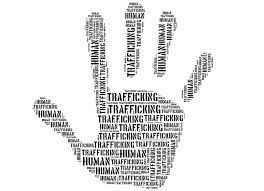There is a war in our community in the form of slavery. It’s real, hidden in plain sight, and tearing at the social fabric of every nation and economic structure.
Slavery didn’t end with Emancipation Proclamation in the United States. Though it looks different today, it’s still very much alive and thriving. It has been reported that an estimated 40.3 million people are enslaved, and an ever-growing percentage of that number is children. Human Trafficking is a $150 billion a year industry, where the commodity is a human being.
There are six types of human trafficking: Forced Labor, Sex trafficking, Organ trafficking, Child Soldier, Child Marriage and Debt bondage. And no community, no subgroup or socioeconomic group is immune.
This modern-day slavery known as human trafficking is the illegal trade or sale of human beings through recruitment, control, and use of people for their bodies and for their labor.
Human trafficking is the fastest growing organized crime against humanity in the world. An inhumane global injustice affecting all communities, it’s in over 170 countries and all 50 U.S. states.
All communities, whether urban, rural, or suburban are vulnerable to this injustice. Our children are one of the highest-risk populations, and traffickers are targeting them to become both victims and perpetrators. In fact, many child victims of human trafficking are students in the American school system. Our community, our schools, our neighbors, all need to be aware that cases of child trafficking are being reported in communities throughout the nation. They also must get involved by educating themselves on the signs of trafficking that they can see and report. It’s going to take the entire comm unity to end this epidemic.
Nelson Mandela once said, “Education is the most powerful weapon which you can use to change the world.”
The Lifeboat Project is a non-profit organization serving Central Florida and is dedicated to raising awareness on the issue of human trafficking with a mission to empower the lives of survivors through long-term aftercare, residential programs, trauma counseling, housing, personal development, and education resources.
To learn more about The Lifeboat Project or to donate, visit thelifeboatproject.org, or if you are an agency or a selfidentified survivor interested in The Lifeboat Project and its programs, please email info@thelifeboatproject.org.
Sonya Hightower LaBosco is the Project Coordinator for The Lifeboat Project.




